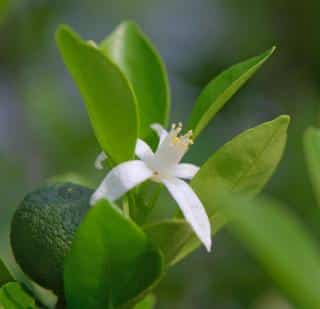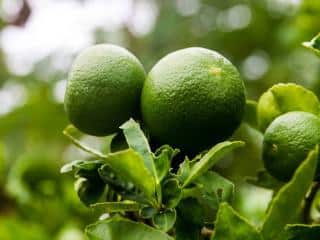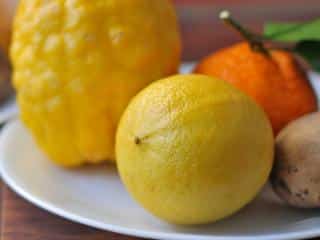

The bergamot orange tree is a citrus that produces bergamot fruit.
Basic Bergamot tree facts
Name – Citrus bergamia
Family – Rutaceae (Rue family)
Type – fruit tree
Height – 10 to 16 feet (3 to 5 meters)
Exposure – full sun
Soil: well-drained – Foliage: evergreen – Flowering: late fall→mid-winter
Bergamot is a type of sour orange that is added to many perfumes and delicious infusions, herbal teas, and such.
The planting of the bergamot orange tree is an important step that influences its further development, bergamot production, and the lifespan of your bergamot tree.

 Growing bergamot trees in pots is best, just as for all citrus, if ever it freezes in your area.
Growing bergamot trees in pots is best, just as for all citrus, if ever it freezes in your area.Pruning isn’t really needed but certain good practices should help increase the harvest and growth of the bergamot orange tree.
After the harvest, shorten each new shoot back to more or less half its length, taking great care to cut just above a leaf.
Remove dead wood regularly and clear the inside branches to let light penetrate to the center.
In pots, water as soon as the soil is dry, without flooding the pot. During the growth phase, regularly add citrus-specific organic fertilizer.
Avoid all heat sources such as nearby radiators, because this could dry your tree out.
If your tree is growing outside in the ground, water only in case of prolonged dry spells or heat waves.
Just like many citrus plants, the bergamot orange and its tree are vulnerable to certain parasites such as scale insects and aphids, but also to a fungus called European brown rot which results in fruits rotting.

Bergamot oranges are mostly grown in Italy, more precisely in the region of Calabre, where about 95% of the world’s production is grown.
There are 4 cultivars – Fantastico, Castagnaro, Calabrese and Femminello.
The fruit is harvested for the fragrant bergamot oil that is found in its rind. It is used for dietary purposes and for perfume-making.
It also is one of the compounds that form Cologne as well as other perfumes, but it also is an ingredient in many Mediterranean dishes like tajine.
Bergamot essential oil has stomach stimulating, antiseptic, antispasmodic and deworming properties. It is recommended in case of intestinal colics, intestinal parasites, difficult digestion or inappetence.
Bergamot essential oils contain bergapten, which was previously much used in suncream to speed tanning. However, bergapten was revealed to have carcinogenic side-effects, and is now removed from products before being made available to the public, following current legislation.
Actually, in Europe and parts of the world other than Italy, the name bergamot is often given to another of the countless citrus hybrids: Citrus limetta. This variety is actually a type of sweet lemon, so called because although its lineage can be traced to mostly include lemons and citron ancestry, its taste is much sweeter and not acidic.
To sum it up, true bergamot boasts strong, intense flavor and its flesh is somewhat greenish. It is the one with the strongest medicinal value. Citrus limetta, on the other hand, is sweeter, blander and has yellowish flesh. The roughness of the skin and the outer skin color may vary also among sub-varieties, so it’s a bit tricky to rely on that exclusively.
So I’m guessing as I live in Canada I probably can’t grow a Bergamot tree? Great article though! Thank you 🙂
Well, not very easily outdoors, it’s true. But you can grow Bergamot in a pot just like you would a potted lemon tree or a container-grown orange. If you feel like reaching back to the past, you can also try growing it in a greenhouse: it can take a mild freezing and the greenhouse usually takes the edge of the coldest freezing. Kind of like the French nobility of old who loved boasting about fruits grown in their orangerie! I did note a few stores seem to be offering this citrus in Canada, in the lower latitudes, so you might try to give it a go!
Awesome! Thanks so much for the response! I love the reference to the “nobility of old” brilliant! I may give it a go. I really love the smell of bergamot and I live in the south western part of Canada so you never know 🙂
There’s definitely a chance that it’ll work. Keep us updated!
Where can I buy a Bergamot orange seeds at?
Hi Gordon! Your best shot is to shop online. There are a few stores that have those seeds for sale, but it’s sometimes difficult to make sure of the variety. Double-check before purchasing and ask the supplier what seed source they have.
Interested in purchasing a Bergemot tree, however in shopping, online, I see two totally different fruits pictured. One looks similar to a cross between a small orange/lemon and the other is green with a rippled/ rough skin. Which one is the most medicinal and fragrant? And also where to purchase?
Hello Linda! Great question. I just updated the article to provide an answer to your bergamot identity issue. Turns out it’s a confusion that’s quite common.